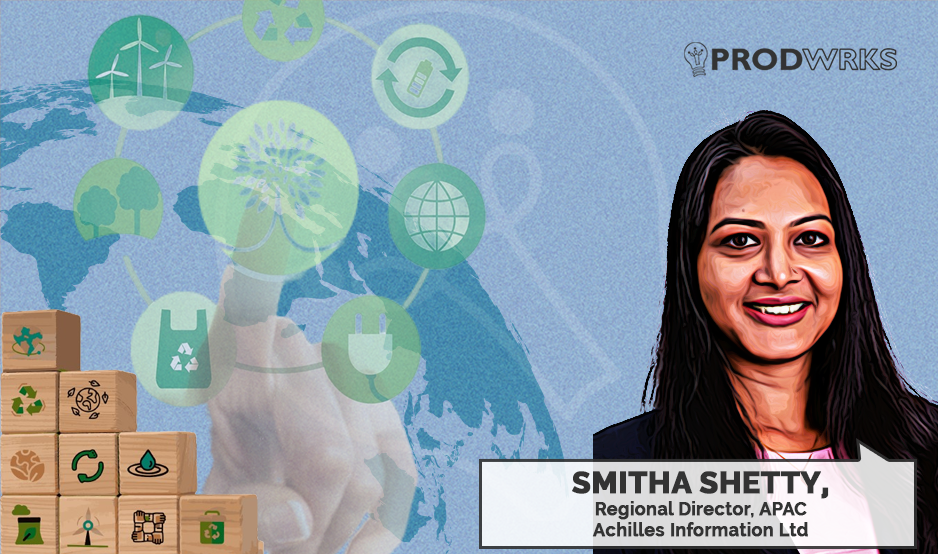
The author of this article, Praveen Paulose, is the MD & CEO of Celusion Technologies.
Businesses and individuals alike know the Fintech industry to be one that is always evolving at a breakneck pace, especially more so in the recent decades, thanks to technological innovations such as the internet. The conscious, seamless, and thoughtful integration of technology in Fintech has significantly transformed the way companies provide services to their customer groups. From Artificial Intelligence and Blockchain, to Machine Learning and Internet of Things, all of these up and coming technological advancements have propelled fintech applications to greater heights. This has revolutionized the entire landscape of the industry at large.
Today, as the financial world stands at the brink of another transformative era, emerging technologies are poised to propel fintech applications to new heights. These cutting-edge innovations promise to redefine the way financial services are accessed, utilized, and secured.
The Rise of AI and ML in Fintech
Artificial Intelligence and Machine Learning in particular are two such technological tools whose contributions cannot be overstated in the realm of the Fintech industry. Together, these technologies have empowered algorithms with many different features that vastly improve different products, services, and applications in fintech. Some of these include the processing of immense volumes of data, providing tailored financial advice, the preciseness in assessing risks, and the prompt detection of frauds in real-time. In the domain of credit scoring, Artificial Intelligence and Machine Learning have both introduced a massive paradigm shift in the Fintech sector. Such abilities of data crunching, according to us, helps with clear decision making and processing the numbers error-free.
By considering diverse data points, these technologies enable organizations to be more inclusive in their approach to evaluating creditworthiness. This inclusive method broadens financial access for individuals with limited credit history, thereby fostering more financial inclusivity. Today, as employed by many organizations, chatbots driven by Artificial Intelligence, as well as virtual assistants, have collectively improved customer service in the fintech sector. They streamline interactions by offering instant responses, handling routine queries, and significantly enhance user experience. We believe the integration of technologies such as AI and ML also help organizations reduce operational costs, thereby providing them with more benefits.
The Link of Blockchain and Cryptocurrencies
Another technological tool that has been an important player in the sector is Blockchain. This tool has come with a lot of disruptive potential, predominantly via cryptocurrencies. Blockchain is decentralized, transparent, and secure. This has paved the way for transformative changes in financial transactions. Beyond cryptocurrencies, Blockchain facilitates smart contracts, which automate agreements without the need for intermediaries. This effectively reduces operational costs.
In addition to this, decentralized finance (DeFi) platforms are able to offer a spectrum of traditional financial services through decentralized systems, which gives users more control over their different financial assets. Speaking about the future trends, blockchain technology has the potential to redefine the Fintech sector by fostering innovation and pushing boundaries with every new development.
Latest Technological Advancements to Look Forward To
The Internet of Things has been a fairly recent technological development. The concept of the Internet of Things (IoT) involves connecting various devices to the internet, allowing them to collect and exchange data. In the domain of fintech, IoT is revolutionizing how individuals interact with their financial matters. Wearable devices, smart home technologies, and connected vehicles are being integrated with financial applications to offer real-time insights into spending habits, financial goals, and more. Wearable devices can track spending patterns or provide immediate notifications on financial transactions, while connected vehicles may enable automatic toll payments or fuel purchases. These integrations not only enhance user convenience but also provide deeper insights into individual financial behaviors.
Quantum computing, although still in its nascent stage for practical application, holds immense potential for fintech. Its unparalleled processing power can solve complex financial problems, significantly enhancing risk management, portfolio optimization, and cryptography.
The ability of quantum computing to process vast amounts of data at unprecedented speeds could revolutionize tasks that are currently time-consuming or even impossible for classical computers. Nevertheless, as observed, the implementation of quantum computing in fintech applications is still a work in progress due to technological and practical limitations.
The constant evolution and upgradation of technology has been instrumental in reshaping fintech capplications in making them more accessible, secure, and efficient, amongst a host of other benefits. The convergence of technological tools such as Artificial Intelligence, Blockchain, Biometric Authentication, Internet of Things, Quantum Computing, and more – are together propelling the Fintech industry forward.
The Future of Fintech
As these technologies mature and intersect, the future of fintech promises to democratize financial services, empowering individuals and businesses with unprecedented control over their financial lives. However, it is advisable to address associated risks and challenges, including regulatory concerns and security threats, to ensure a robust and sustainable fintech ecosystem.
The ongoing evolution of these technologies will redefine how financial services are accessed, utilized, and secured, creating a more inclusive, efficient, and secure financial landscape for all users. The advancements in fintech technologies are continually evolving, promising a future where financial services will be more seamless, secure, and user-centered.
The integration of AI, blockchain, biometrics, IoT, and the potential advent of quantum computing will undoubtedly shape the future of the financial industry, creating a more inclusive and accessible environment for all users. The continued innovation in the fintech space is set to empower individuals and businesses by providing advanced tools and services to manage their finances more effectively.
This technological progression is not without its challenges; regulatory frameworks, security concerns, and ethical considerations need to be addressed to ensure the sustainability and security of these emerging fintech solutions. Nevertheless, we believe that the future looks promising, as these advancements will undoubtedly shape the way financial services are accessed, managed, and utilized, making the financial world more convenient and secure for everyone.
ABOUT THE AUTHOR


Praveen Paulose became a first generation entrepreneur when he started Celusion Technologies. The idea was based on the premise that they could build great software but today their software is changing the way people look at finance. Celusion Technologies has been a bootstrapped company that has always been careful with the money and they have been profitable from the word Go. They follow a flexible business model ranging from cloud based software as a service to licence based fees for on site deployment.
Praveen is passionate about technology and spends most of the day either programming or reading about the next big thing in technology and how that can be applied to their offerings. He loves solving complicated business challenges using technology.
His business mantra is summed up in three words, “Possible is Everything.” Today, Praveeen is a sought after business leader in the fintech sector in India that is on an explosive growth path.



